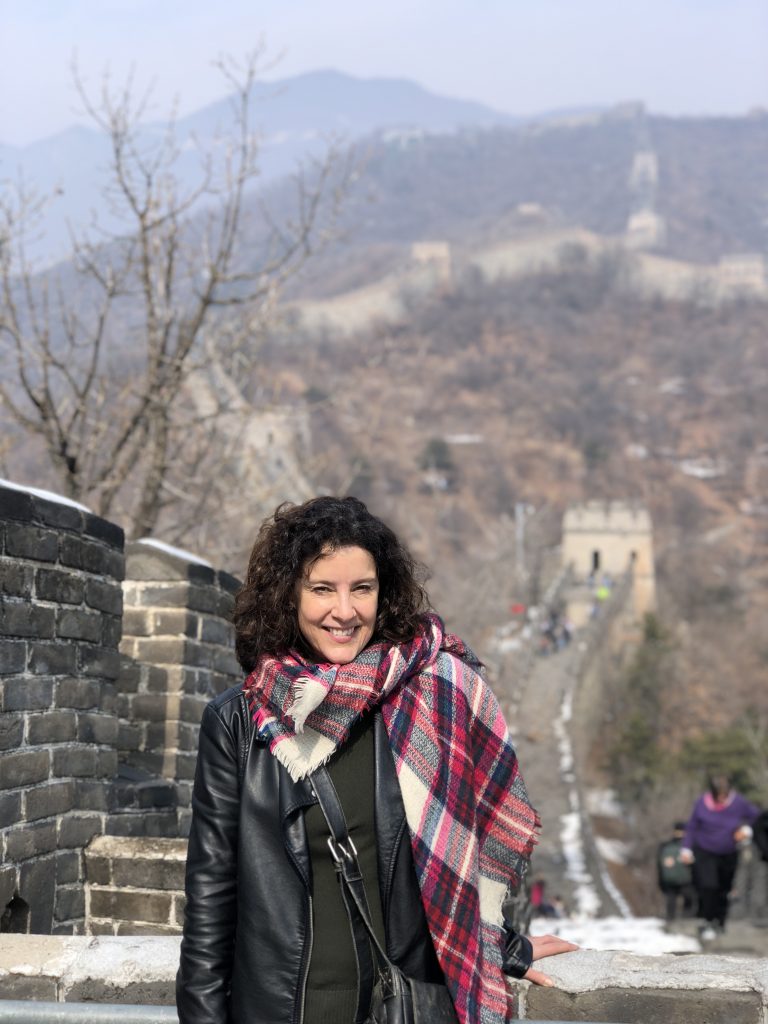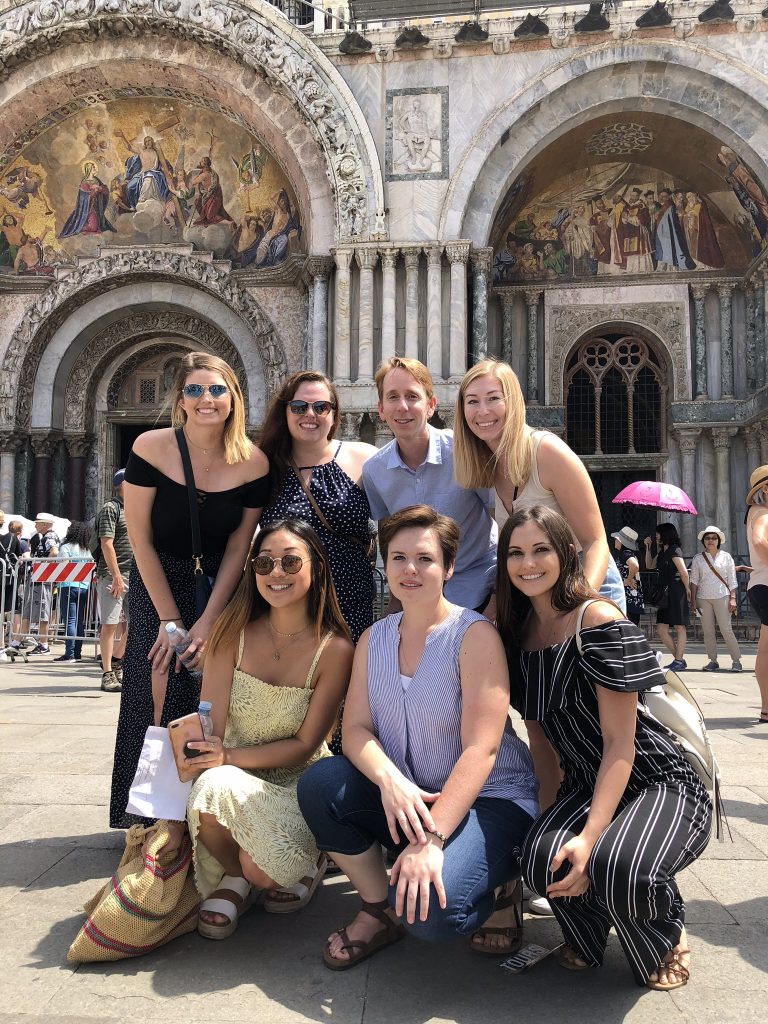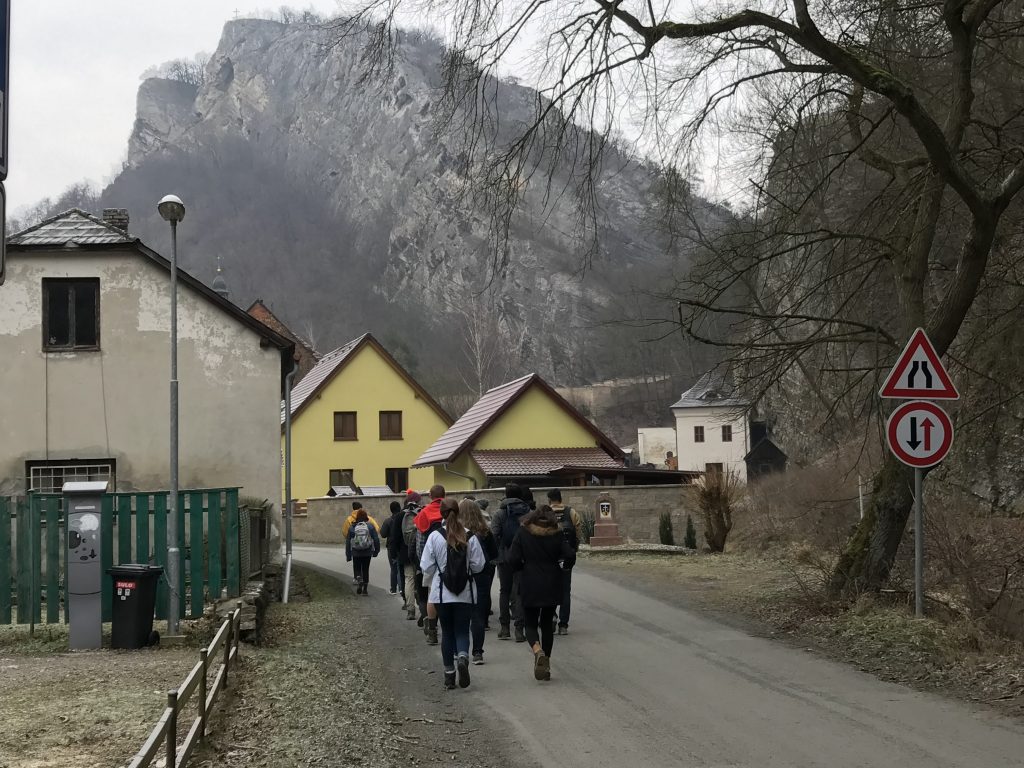Faculty Go Global

A Chico State professor stands with a group of monks during his visiting professor assignment.
On a sultry summer evening in Alicante, Spain, a battle between the Moors and Christians is brewing. The Moors, adorned in traditional Arab garb, carry curved-blade scimitars, their weapons of choice. The Christians, wearing fur, armor, and metallic helmets, ready their traditional firearms, called arquebuses.
Chico State professor Sarah Anderson watches, transfixed. This is Alicante’s annual Moros y Cristianos festival, a reenactment of the epic Middle Age battles in which the Catholic monarchs reclaimed Spain from the Moors.

While historical Spanish battles are detailed in plenty of books—and discussed in detail in Anderson’s Chico State classroom—immersing herself in the culture from which she teaches was an unparalleled experience, she said. More importantly, it was one she wanted to take back stateside to enrich her teachings after a summer-long teaching stint at the University of Alicante.
“I am a lifelong learner of Spanish and of the countries where it is spoken, things like their history, politics, literature, art, and culture,” said Anderson, who’s scheduled to return to the University of Alicante in summer 2019. “Teaching abroad provides me an opportunity to grow as an educator and become more knowledgeable as a lifelong learner in my discipline.”
In opting for a visiting professorship, Anderson (Spanish, ’92) joins a long list of faculty who have embraced teaching beyond US borders. According to the University Studies Abroad Consortium (USAC), more Chico State faculty regularly apply and teach abroad with USAC than any other higher education institution in the nation. In summer 2018, 17 Chico State faculty taught abroad, while 9 are preparing to teach at foreign locations this coming summer, and 14 have been selected to teach abroad in the 2019–20 academic year.
The appeal of a visiting professorship ranges from expanding a knowledge base and making connections to designing innovative, disciplinary curriculum that address international and regional issues, explained Sara Trechter, interim associate vice president for International Education, who taught in Spain over two summers, as well as in Saudi Arabia.

Sara Trechter, interim director of the Office of International Education, has taught twice at the University of Alicante, as well as in Saudi Arabia.
“Our faculty members have been very successful because they work to create interesting courses that appeal internationally,” Trechter added, “and their reputation for excellence and success abroad is highly recognized.”
For the 2019–20 academic year, 33 Chico faculty members were among 157 applications to teach abroad. Of the 75 visiting professorships awarded by USAC, 14 went to Wildcats (the next closest university, University of Nevada, Reno, received 11).
The experiences they will have range from leading a faculty-led program to Nepal to teaching in Prague and Melbourne, said Jennifer Gruber, a Study Abroad and International Exchange coordinator from the University’s Office of International Education, whose passion for global education is personal. After studying at the Università degli Studi di Trento in Italy in college, Gruber has since leveraged her experience, interest, and rich life experiences into a mission to encourage students and faculty to participate in a transformative trip of their own.
In order to be considered to teach abroad through USAC, applicants must be full-time faculty in good standing at their institution, possess at least a master’s degree, and be scheduled to teach at their institution the semester prior to and the semester after their visiting professorship assignment. Faculty search the USAC website from 54 program locations in 28 countries, and when they find a site, they create a course and curriculum and submit their application.
They can teach for a semester term (during which they teach two classes) or during a summer program (ranging from three to six weeks long). Sometimes faculty choose to take their own disciplines abroad. Others, like cultural anthropology professor Jesse Dizard, opt for something different.

In 2000 while teaching anthropology at Southwestern Oregon University, he taught English in South Korea—a country he had never been to before. Opening up to the experience of teaching in another country “rearranges your intellectual furniture,” he said.
“Any experience that will broaden an instructor’s palate to draw examples to illustrate or provoke an insight in a way that students can grasp more easily than just telling them, ‘that’s just the way it is,’ is good,” Dizard said. “The more nuanced your experiences as a person are, the more time you’ve spent seeing things that are not pre-masticated, that are not readily available here, broadens that palate.”
Of course, teaching abroad can be difficult work. Just like studying abroad, language barriers and learning, understanding, and adapting to cultural norms can create unexpected stumbling blocks.
Aside from teaching five classes as part of this regular assignment in South Korea, Dizard also led a special English conversational group for University faculty and volunteered once a week at a local church to teach English to their children of the congregation, ranging in age from 6 to teenagers. He added that it was the hardest teaching work he’d ever done.
“The work of teaching was more intellectually demanding than I had anticipated because the available materials were substandard and I had to modify them significantly,” Dizard said.
Ultimately, Dizard said, the students were the highlight of his experience, as they were all very respectful, funny to be around, and extremely hard working.
“I loved the social interaction, the friendly welcoming culture,” Dizard said, “and I could not get enough of the food. It was so, so, so good!”

The seeds of Chico State’s faculty teaching overseas are often planted when they study abroad during their own collegiate years, which alter their academic trajectory in unexpected ways.
Anderson entered Chico State studying to become an elementary school teacher. Fondly remembering her high school Spanish class, she studied in Mexico for six weeks during her sophomore year in college. The experience changed everything.
“I went to Mexico, fell in love with everything about the whole experience, like the language and the culture, and I came back very determined to become bilingual. It was such an important part of my college years and really led me down the path that I ended up taking,” said Anderson, who began teaching at Chico State in 2007 and is in her fourth year teaching international languages and cultures.
Studying in France as a comparative literature major, Dizard’s chance encounter with a group of long-distance truck drivers from Algeria led to conversations about their work and exotic routes through the Sahara Desert. He ultimately traveled with the truck drivers to learn more about their culture and was exposed to an entirely new world, one that ultimately led him to his current field of anthropology.
Dizard added that when a visiting professor teaches a course abroad can also fashion a way for them to renew and, perhaps, reinvent themselves.
“Let’s face it, no matter how into whatever it is you happen to be doing you are, it’s all too easy to get a little lazy,” Dizard said. “Take it on the road, and then things come to you. The old is new again, and stuff that might have been boring becomes exciting again.”
The thrills they find—both within and outside their disciplines—ultimately not only follow them home, but into their classrooms.
“I always tell my students, sometimes you start college and you’re not really sure what you want to do,” Anderson said. “If you can, go abroad. It might change your life. It changed mine.”


